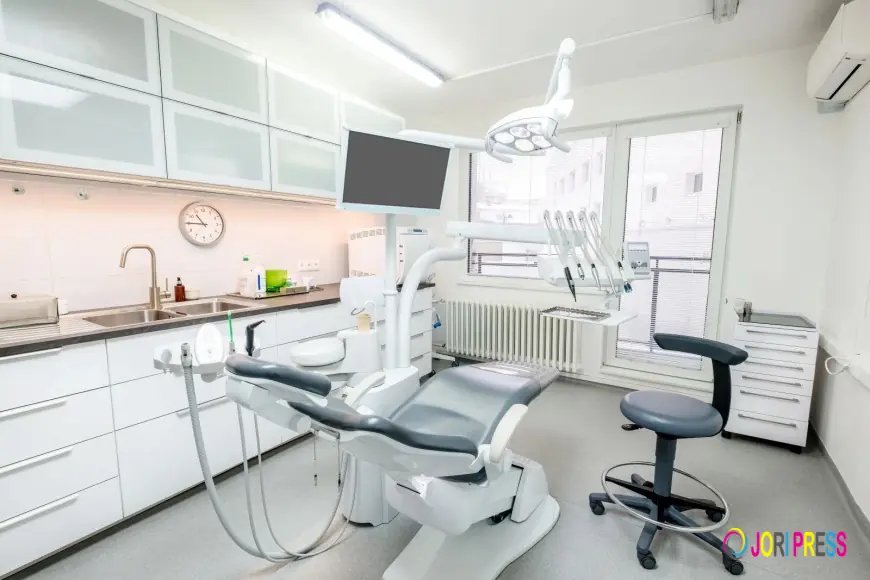How to Take Care of Dental Implants and Improve Overall Mouth Hygiene
Learn how to take care of dental implants with daily hygiene tips, gum care steps, and effective oral habits to maintain long-term implant health.

Introduction
Dental implants are designed to look, feel, and function like natural teeth. They offer long-term stability, restore confidence, and support everyday activities like chewing and speaking comfortably. But to enjoy these benefits for many years, you must properly. Maintaining good oral hygiene plays a crucial role in protecting the implant, surrounding gums, and overall dental health. This guide explains how to take care of dental implants and improve your day-to-day mouth hygiene through simple and practical steps.
Understanding the Importance of Implant Care
Dental implants rely on strong gum tissue and a healthy jawbone to remain secure. Even though implants do not decay like natural teeth, the surrounding gums can still get infected if proper care is not taken. Learning how to take care of dental implants ensures long-term success, durability, and comfort.
What Happens If You Don’t Care for Your Implants
Failing to practice daily oral hygiene can lead to gum inflammation, discomfort, and long-term risks. Food particles, bacteria, and plaque can accumulate around the implant, leading to problems if not cleaned properly. Knowing how to take care of dental implants helps prevent these issues and keeps your mouth healthy.
How to Take Care of Dental Implants Daily
Brush Your Implants Twice a Day
Brushing is one of the simplest ways to care for dental implants and keep your mouth clean. Use a soft-bristled toothbrush to gently clean around the implant crown, gums, and surrounding teeth. Brushing twice a day helps remove plaque and bacteria that can irritate the gums.
Use a Low-Abrasive Toothpaste
To maintain the shine and surface of the implant crown, use a low-abrasive toothpaste. This type of toothpaste protects the implant while still removing plaque effectively.
Don’t Forget the Gumline
Many people focus only on the implant crown, but the gumline is just as important. Cleaning this area helps prevent inflammation around the implant and keeps gum tissue healthy.
Why Flossing Is Essential for Implant Health
Floss Daily Around Your Implant
Food particles can easily get trapped between your implant and natural teeth, creating a breeding ground for bacteria. Flossing once a day protects the gums and reduces the risk of infection. Using non-waxed or implant-friendly floss helps clean the sides of the implant effectively.
Try Interdental Brushes
If traditional flossing feels difficult, interdental brushes are a great alternative. They reach deeper spaces and help remove plaque more efficiently. These tools are especially useful for people with multiple implants.
Using Mouthwash to Support Implant Care
Antibacterial Mouthwash Helps Reduce Bacteria
Rinsing with antibacterial mouthwash helps kill harmful bacteria in the mouth, especially in hard-to-reach areas. This supports gum health and keeps implants clean throughout the day.
Avoid Mouthwashes With Harsh Chemicals
Some mouthwashes contain strong alcohol or chemicals that may irritate the gums. Choose a gentle, implant-safe mouthwash that supports long-term oral hygiene.
Daily Lifestyle Habits That Support Implant Health
Stay Hydrated Every Day
Drinking enough water helps keep your mouth naturally clean. Water washes away food particles and supports saliva production, which is important for maintaining balanced oral health.
Eat Foods That Help Protect Your Implants
While implants are strong, it’s still important to protect them by eating carefully. Soft fruits, vegetables, lean proteins, and calcium-rich foods promote gum health and support strong jawbone structure.
Avoid Extremely Hard Foods
Hard foods may create unnecessary pressure on the implant crown. Choosing safer food options helps maintain the implant’s integrity and supports long-term stability.
How to Improve Overall Mouth Hygiene Along With Implant Care
Clean Your Tongue Daily
Your tongue collects bacteria that contribute to bad breath and gum problems. Cleaning your tongue every day helps maintain freshness and reduces bacteria that can affect the implant area.
Replace Your Toothbrush Regularly
Worn-out bristles cannot clean effectively. Replacing your toothbrush every three months — or sooner if needed — helps keep implants clean and prevents plaque buildup.
Practice Proper Brushing Technique
Effective brushing includes small circular motions and gentle pressure. Taking your time ensures that you clean the implant crown, gums, and surrounding areas thoroughly.
Maintaining Healthy Gums Is Essential for Implant Success
Watch for Early Signs of Gum Issues
Redness, swelling, bleeding, or tenderness around the implant area may indicate gum problems. Noticing these signs early helps protect the implant and maintain long-term oral health.
Keep Your Gums Strong With Proper Care
Gum health is essential because implants depend on strong tissue for support. Proper brushing, flossing, and lifestyle habits like staying hydrated help keep the gums in excellent condition.
Additional Tools to Make Implant Cleaning Easier
Water Flossers Help Remove Debris
A water flosser is a great option for cleaning around implants. The water stream removes trapped food and plaque effectively without putting pressure on the implant.
Use Implant-Safe Cleaning Products
Some oral care products are specifically designed for implants. These products help protect the implant surface while offering deeper cleaning.
Consider Special Implant Brushes
Small, angled brushes are excellent for cleaning around the back of the implant and along the gumline. They offer greater precision and help maintain long-term hygiene.
Long-Term Care Tips for Sustainable Implant Health
Stick to a Consistent Oral Hygiene Routine
Consistency is key when learning how to take care of dental implants. Following your brushing, flossing, and rinsing routine every day ensures long-term success.
Avoid Grinding or Clenching
If you grind your teeth, using a mouthguard can protect your implant from pressure and damage. Reducing stress or practicing relaxation techniques can help minimize nighttime clenching.
Choose Oral Care Products Designed for Sensitive Gums
Implant areas may require gentle care, so using products designed for sensitive gums can help maintain comfort and cleanliness.
Common Mistakes to Avoid When Caring for Dental Implants
Ignoring Gum Health
Some people focus only on the implant crown, forgetting that the gums play a major role. Strong gum tissue keeps the implant secure and healthy.
Skipping Daily Cleaning
Skipping brushing or flossing increases the risk of infection. Keeping a consistent routine is essential for implant longevity.
Using Abrasive Products
Avoid harsh toothpaste or stiff brushes that can damage the implant crown or irritate the gums.
Conclusion
Learning how to take care of dental implants is one of the most important steps in maintaining long-term oral health. With proper brushing, flossing, mouthwash use, and healthy lifestyle habits, you can protect your implants and maintain a clean, comfortable smile. Daily oral hygiene, gum care, and consistent routines help ensure your implants stay strong and functional for years. By following these simple and effective tips, you can enjoy every benefit your dental implants offer while keeping your overall mouth hygiene at its best.
What's Your Reaction?
 Like
0
Like
0
 Dislike
0
Dislike
0
 Love
0
Love
0
 Funny
0
Funny
0
 Angry
0
Angry
0
 Sad
0
Sad
0
 Wow
0
Wow
0

















































